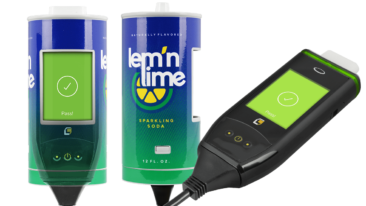Lowest Cost Ignition Interlock
LOWER 2025 PRICING – BI-WEEKLY PAYMENTS – FREE SHIPPING*

Get the Can FREE!*
Reserva una Instalación
Call (844) 387-0326 – No Wait Times
Exclusive CADTP Partner!
*RESTRICTIONS APPLY. INTERLOCK CAN IS FREE WITH PURCHASE OF OPTIONAL PROTECTION PLAN. FREE SHIPPING APPLIES TO STANDARD RATE SHIPPING. ACTIVATION FEE STILL APPLIES.
Ignition Interlock Device Laws in Oklahoma
As a premier provider of ignition interlock services in Oklahoma, Low Cost Interlock has the best personnel, parts, and tools to exceed your expectations through every project. We offer a full range of services that includes ignition interlock installation in your vehicle, maintenance, calibration, and more.
Combining the latest in cutting-edge hardware and software, our unique ignition interlock system delivers greater efficiency and accuracy than other alcohol detection systems on the market. That translates to faster results that you can always rely on, without the need for complex breathing patterns.
Ignition Interlock Device Laws in Oklahoma
Similar to other states, Oklahoma enforces an implied consent law. Implied consent laws essentially state that by owning a license, you automatically permit an officer of the law to administer a chemical breath test should they suspect that you are driving while intoxicated. If you refuse to take the chemical breath test at the time of your arrest, you are actively breaking the implied consent law, resulting in immediate administrative penalties. For a test refusal, you can expect an immediate license revocation lasting 180 days to three years depending on prior offenses and violations on your record.
You will also receive administrative penalties if you fail a chemical test. Administrative penalties for a DUI are in addition to any criminal penalties you may receive in court.
For driving with a blood alcohol content between 0.05 and 0.08 percent, you will receive a license suspension of up to one year. Driving with a BAC over 0.08 percent will result in an administrative suspension lasting:
- 180 days for a first DUI offense
- One year for a second offense
- Three years for a third offense
You may also be required to take part in a drug and alcohol assessment and evaluation program, and you may be subject to a variety of fines and fees.
Criminal penalties for impaired drunk driving with a blood alcohol content between 0.05 and 0.08 percent may include:
- $100 to $500 in fines
- Up to six months of imprisonment
Criminal penalties in court for a first DUI arrest may include:
- A misdemeanor charge
- Up to $1,000 in fines
- 10 days to one year in jail
These criminal penalties for drunk driving may vary based on the specific violations and severity of your case. If you are required to install an ignition interlock device in your vehicle, you are responsible for all fees.
Learn more about Oklahoma’s DUI laws and penalties here.
General Information
TYPES OF OFFENSES
While the laws vary in each state for impaired driving, Oklahoma has several laws that define alcohol/drug-related driving offenses:
Driving While Impaired (DWI)
A person is driving while impaired when there is evidence that there was, at the time of the test, an alcohol concentration in excess of five-hundredths (0.05) but less than eight-hundredths (0.08). However, no person shall be convicted of driving while impaired in the absence of additional evidence that the person’s ability to operate such vehicle was affected by alcohol to the extent that the public health and safety was threatened or that the person had violated a state statute or local ordinance in the operation of the motor vehicle
Driving Under the Influence (DUI)
A person is driving under the influence when they drive, operate, or are in actual physical control of a motor vehicle within this state, whether upon public roads, highways, streets, turnpikes, other public places or upon any private road, street, alley or lane which provides access to one or more single or multi-family dwellings, who:
- Has a blood or breath alcohol concentration, as defined in 47 O.S. § 756, of eight-hundredths (0.08) or more at the time of a test of such person’s blood or breath administered within two (2) hours after the arrest of such person;
- Is under the influence of alcohol;
- Has any amount of a Schedule I chemical or controlled substance, as defined in 63 O.S. §2-204, or one of its metabolites or analogs in the person’s blood, saliva, urine or any other bodily fluid at the time of a test of such person’s blood, saliva, urine or any other bodily fluid administered within two (2) hours after the arrest of such person;
- Is under the influence of any intoxicating substance other than alcohol which may render such person incapable of safely driving or operating a motor vehicle; or
- Is under the combined influence of alcohol and any other intoxicating substance which may render such person incapable of safely driving or operating a motor vehicle.
The fact that any person is or has been lawfully entitled to use alcohol or a controlled dangerous substance or any other intoxicating substance shall not constitute a defense against any charge of driving under the influence.
Driving Under the Influence (DUI) Under 21
A person under the age of 21 is driving under the influence when they drive, operate, or are in actual physical control of a motor vehicle within this state who:
- Has any measurable quantity of alcohol in the person’s blood or breath at the time of a test administered within two (2) hours after an arrest of the person;
- Exhibits evidence of being under the influence of any other intoxicating substance as shown by analysis of a specimen of the person’s blood, breath, saliva, or urine in accordance with the provisions of 47 O.S. § 752 and 47 O.S. § 759; or
- Exhibits evidence of the combined influence of alcohol and any other intoxicating substance.
Aggravated Driving Under the Influence
Any person who is convicted of a violation of driving under the influence with a blood or breath alcohol concentration of fifteen-hundredths (0.15) or more is guilty of aggravated driving under the influence.
Child Endangerment
A person who is the parent, guardian, or person having custody or control over a child as defined in 10A O.S. § 1-1-105, commits child endangerment when the person:
- Knowingly permits a child to be present in a vehicle when the person knows or should have known that the operator of the vehicle is impaired by or is under the influence of alcohol or another intoxicating substance; or
- Is the driver, operator, or person in physical control of a vehicle in violation of 47 O.S. § 11-902 while transporting or having in the vehicle such child or children.
However, it is an affirmative defense to this paragraph if the person had a reasonable apprehension that any action to deny permission for the child to be in the vehicle with an intoxicated person would result in substantial bodily harm to the person or the child.
PENALTIES
In Oklahoma, being arrested for drunk driving can cost more than $10,000 in fines and fees.
In addition, Oklahoma laws require that any driver convicted of driving under the influence (DUI) or in actual physical control of a motor vehicle, aggravated DUI, with a blood alcohol content of 0.15 or higher, must install an ignition interlock device on every vehicle they own or which is registered to them.
As a result of conviction, an interlock will be required for 18 months for first-time offenders; second-time offenders will be required to use an interlock for four years if their BAC exceeds .08. Any additional DUI convictions will result in the use of an interlock for five years.
License revocation is another penalty for impaired driving in Oklahoma. If an impaired driver fails or refuses a breath test, their license is confiscated immediately. The driver can request a hearing to challenge the ruling, but, if unsuccessful, their license will be suspended for a minimum of six months.
Sentencing can also occur after a trial or plea agreement. For a first felony, drunk drivers can expect 1-5 years of jail time, fines of up to $2,500 and a 1-year revocation of their license, if the license was previously revoked within the last 10 years.
Second and subsequent charges carry 1-10 years of jail time, fines of up to $5,000 and an automatic 3-year or longer revocation of their license, if the license had been revoked 2 or more times in the past 10 years.
MINORS
As part of the Drunk Driving Prevention Act, Oklahoma’s strict zero tolerance law makes underage drinking and driving a criminal offense. A conviction or deferred sentence for any of the following will result in license revocation and mandatory interlock:
- Any amount of alcohol found in the system of a driver under 21
- A person under 21 can be charged with a misdemeanor punishable by up to 10 days in jail and/or $1000 fine for their refusal to take a test.
- A first drug or alcohol offense, including possession, use or abuse committed by anyone under 18
- Misrepresenting one’s age to obtain alcohol by anyone under 21
SOCIAL HOSTS
A “Social Host” can be a minor or adult and does not have to be physically present or the actual property owner. These Social Host violations carry a first-time fine of up to $500.
If someone is injured or killed because of a Social Host violation, the host can be charged with a felony, punishable by up to five years in prison and a fine up to $2,500. Fines and penalties increase with additional violations.

